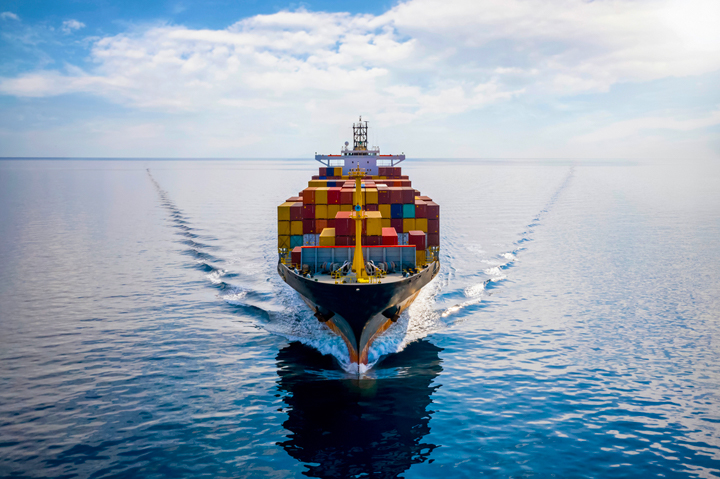April 21, 2022
Bill to Improve Supply Chain Moves Through Congress
Trade groups across industries, including promotional products, are urging legislators to finalize the Ocean Shipping Reform Act and make it law.
Throughout the recent pandemic, supply chains have been beset by problems. Now, a bill making its way through Congress aims to improve the situation.
In a unanimous vote, the United States’ Senate recently passed its version of the Ocean Shipping Reform Act (OSRA), which aims to address challenges in the maritime shipping industry that have long troubled supply chains and been worsened by COVID-19 disruption. The U.S. House of Representatives approved its version of the bill last year.

Differences between the House and Senate bills need to be addressed before a final bill can go to President Joe Biden for signing into law. Trade groups across industries in the U.S. that import, including the American Apparel and Footwear Association (AAFA), are urging Congress to negotiate the final particulars so the act can be made law as soon as possible. Promotional Products Association International (PPAI) also supports the legislation.
The reforms in the bill will “help address the longstanding, systemic supply chain and port disruption issues which have been further exacerbated by the COVID-19 pandemic,” AAFA said. “While we know that the supply chain disruptions will continue through 2022 and perhaps into 2023, it is time to finalize the OSRA so that industry can begin to make the necessary changes to help address some of the unreasonable business practices the bill targets, especially strengthening the role of the Federal Maritime Commission (FMC).”
The bill the Senate passed would require ocean carriers to certify that late fees — known in maritime parlance as “detention and demurrage” charges — comply with federal regulations, or else face penalties. It would shift the burden of proof regarding the reasonableness of detention or demurrage charges from the invoiced party to the ocean carrier, and prohibit ocean carriers from unreasonably declining shipping opportunities for U.S. exports, as determined by the FMC in new required rulemaking.
In addition, the bill would mandate ocean common carriers to report to the FMC each calendar quarter on total import/export tonnage and 20-foot equivalent units (loaded/empty) per vessel that makes port in the U.S. It would also authorize the FMC to self-initiate investigations of ocean common carriers’ business practices and apply enforcement measures, and establish new authority for the FMC to register shipping exchanges.
Sen. Amy Klobuchar, a Democrat, was a lead co-sponsor of the bipartisan Senate bill, along with Republican Sen. John Thune.
“Congestion at ports and increased shipping costs pose unique challenges for U.S. exporters, who have seen the price of shipping containers increase four-fold in just two years, raising costs for consumers and hurting our businesses,” Klobuchar said. “Meanwhile, ocean carriers that are mostly foreign-owned have reported record profits. By passing this bill, we are one step closer to leveling the playing field for American manufacturers and consumers.”
Some in the shipping industry, including the World Shipping Council, have heavily criticized the bill, asserting that it fails to address fundamental factors for issues like congestion at U.S. ports.
“Americans continue to import goods at record levels — so much so that the U.S. ports and landside logistics workforce is unable to process all the cargo,” the Council said. “Ocean carriers have deployed every vessel and every container available, and are moving more goods than at any point in history, but the U.S. landside logjams are keeping vessels stuck outside U.S. ports. This import congestion is also consuming the capacity and space needed to ensure the uninterrupted flow of U.S. exports. While the Senate is taking a more deliberative approach than the House’s flawed process in passing the Ocean Reform Act of 2021, H.R.4996, neither chamber’s version of the bill does anything to fix the landside logistics breakdowns that are at the heart of America’s supply chain problems.”
